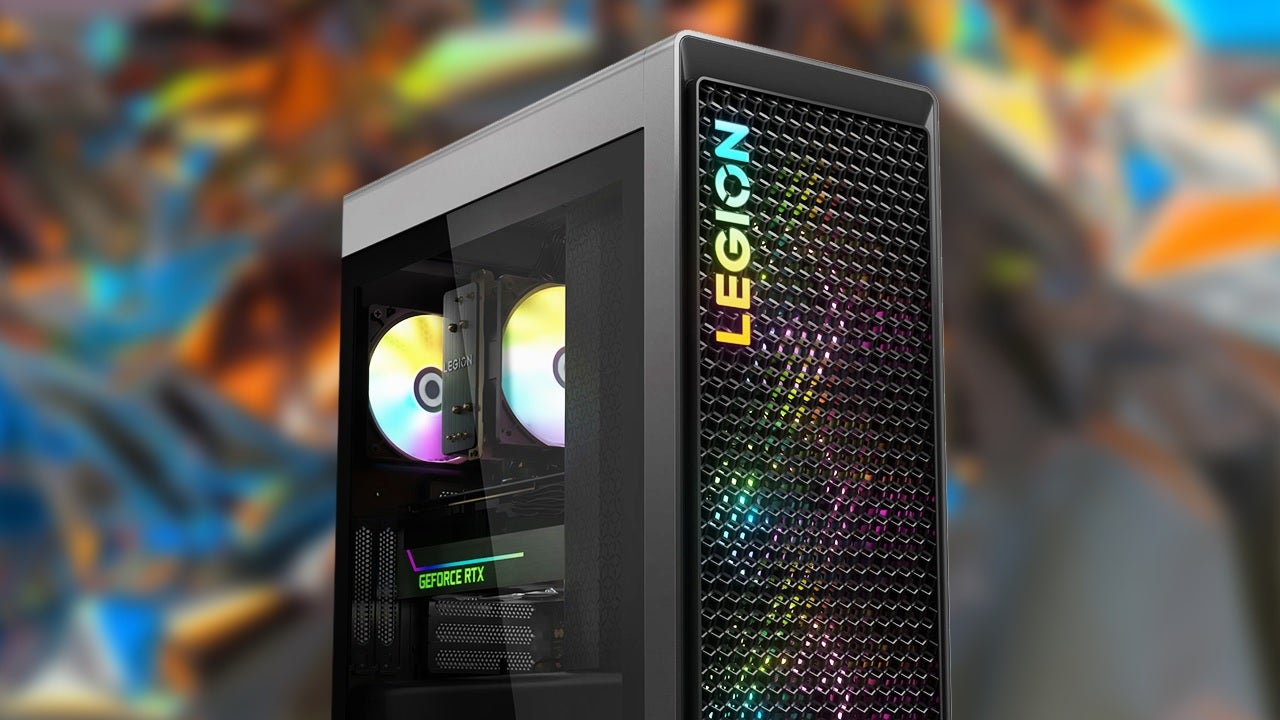For all the love (and controversy) super-high-end graphics cards like the Nvidia GeForce RTX 4090 get these days, little is said about the golden age of CPUs we're living in, but the Intel Core i9-14900K is a perfect example of the power of the current selection. Because while Intel is kind of still recovering from the beating it took from the first few generations of AMD Ryzen processors, these new Raptor Lake chips show that Intel is back with a vengeance.
This chip marks the third generation of Intel's hybrid architecture that began with the 12th-generation Alder Lake processors (led by the Core i9-12900K). Intel basically saw what Apple was doing with the M1 in the MacBook Pro and said "hold my thermal paste," all while maintaining downright perfect app compatibility in Windows 11 gaming laptops and PCs. The 14900K, then, two generations later, marks an ideal time to jump back into Team Blue.
Hybrid Chip Architecture: What Does it Mean?
The key to the Core i9-14900K and Core i5-14600K's success is in how they are actually built. For the longest time, desktop processors like this had a monolithic chip design, where an eight-core processor was pretty straightforward: grab eight of the same cores, slap them on the CPU, and call it good. That's still the approach AMD Ryzen chips take these days, and it still delivers excellent results, especially in heavily threaded workloads like video editing.
Starting with Intel's 12th-generation Alder Lake chips, though, Team Blue took a page out of ARM's (and Apple's) playbook, and went with a “big.LITTLE” chip design. What does big.LITTLE mean? Well, basically, instead of having eight cores that are all the same, you instead build a processor with four big cores and four little cores. The big cores handle extremely heavy workloads like PC games or creative apps, while the little cores can efficiently handle all the background tasks that can add up and slow down your PC.
Intel has pretty lame names for these cores, with the big cores being called "Performance" cores, or P-Cores, and the little cores "Efficient" cores, or E-Cores. Intel's P-Cores are the only cores on its chip with HyperThreading, so you end up with a Core i9-14900K with 24 cores and 36 threads. If it was a monolithic die, that'd be 24 cores and 48 threads, but instead, you get eight performance cores with HyperThreading for 16 threads, then 16 E-Cores. The Core i5-14600K has an impressive-sounding core count, too, coming in with 14 cores and 20 threads, which makes it appear to be much more high-end than the Ryzen 5 7600X when it’s really at about the same level, thanks to the eight single-threaded efficient cores in the 14600K.
Intel Core i9-14900K & Core i5-14600K – Specs
The Core i9-14900K, just like the 12900K and 13900K before it, is built on the Intel 7 manufacturing process. This means Intel is still on a 10nm node, while AMD and Apple are creating new processors on much smaller nodes. This doesn't mean anything when it comes to raw performance, it turns out, as we'll find out a bit later.
While it might be a bit of a disappointment for Intel to still be on 10nm in 2023, it does mean you don't need to buy a new motherboard. Both the Core i9-14900K and Core i5-14600K are compatible with any Z690 or Z790 motherboard, provided you update the BIOS. I wouldn't recommend upgrading to the Core i9-14900K if you already have a 13900K or 12900K, however, because the boost in performance over the last couple generations isn't really worth the cost of upgrading. These 14th-generation processors are better for people who are still using a 9th- or 10th-generation Intel Processor.
One of the things that leads to the incredible performance we see out of the Core i9-14900K, and to a lesser extent the Core i5-14600K, is the incredible amount of electricity these processors consume. In Cinebench, for example, the Core i9-14900K will suck up 329W out of your wall by itself, when the Ryzen 9 7950X3D only draws 146W with similar performance. And that's before the 400W+ that an RTX 4090 will require. The Core i5-14600K is a little lighter on your power bill, peaking at just 172W, but either way you're going to want a beefy cooler to handle all that juice. With all this power the 14900K manages to hit a whopping 102C when pushed to its limits, even with a 420mm Corsair H170i Elite LCD liquid CPU cooler.
The Core i5-14600K is a little more manageable, peaking at 88C, but it just goes to show that both CPU manufacturers are more interested in pushing performance as hard as possible than they are in being efficient, and they’re willing to go right up to the temperature limit to do it. Luckily, CPUs are much more durable these days than they were X years ago, when you’d fry your Y at N degrees C, so you won't have to worry about your CPU cooking under all this heat. It still isn't great for the ambient temperature inside your PC case, though.
Intel Core i9-14900K & Core i5-14600K – Performance
While the Core i9-14900K might give the surface of the sun some competition, the performance is absolutely worth the stress of watching your hardware monitor like a hawk. Intel has once again crafted the best processor for gaming, though it's not exactly head and shoulders above the competition.
I paired each of the processors tested for this review with an Nvidia GeForce RTX 4090, 32GB of DDR5, and the Asus Prime Z790-A Wifi for Intel and the Asus ROG Crosshair X670E Hero. However, one thing I have to call out is the RAM I'm using: The only kit of DDR5 I currently have handy is a 32GB kit of G.Skill Trident Z5 Neo at 6,000MHz. The problem is that the EXPO profile for this RAM does not translate to XMP, and even after a lot of tweaking, I still couldn't get the RAM up to the same speed on an Intel platform, so I ran the tests with the RAM at 4,000MHz on Intel.
Realistically, this doesn't mean much, and I'll retest once I get my hands on some Intel XMP-tested RAM and update this review if it makes a sizable difference. I don't think it will, because the limiting factor for the Core i9-14900K is the temperatures.
While testing, I've observed the all-core clock immediately shoot up to an incredible 5.7GHz on the P-Cores. That's awesome, for sure, but it corresponds with the temperatures also immediately jumping up to the thermal limit. Then throttling kicks in, with the clock speed settling around 5.0GHz in longer tests like Cinebench.

That doesn't mean the Core i9-14900K is a slouch at that speed, though. Even in the Cinebench multi-threaded test, which hammers the CPU with a heavy rendering workload for 10 minutes, the Core i9-14900K scored 37,173 points, compared to the Ryzen 9 7950X3D's 35,503 points. That's a 5% difference in Intel's favor, cementing the 14900K as the correct choice for creative workloads.
The Adobe Premiere and Photoshop tests back this up too, with the Core i9-14900K topping our charts in the Puget Labs benchmark for both apps. If you're a creative professional, the Core i9-14900K is probably your best bet, as the hybrid chip architecture is a huge part of why Team Blue's processors win the day here.
When it comes to games, however, the Core i9-14900K and Core i5-14600K essentially replace their last-generation counterparts.
In 3DMark Speed Way, which tests performance in new-gen DirectX 12 games, the Core i9-14900K stays neck and neck with the Ryzen 9 7950X3D and the Core i9-13900KS. However, if you look at the 3DMark CPU Profile test, the Core i9-14900K blows both of those processors out of the water, scoring 17,205 points to the Ryzen 9 7950X3D's 14,484 points.
I also tested these processors in Total War: Warhammer 3, and ran the tests at 1080p max settings rather than 4K, just because you need to turn down the resolution to show the gap between processors, especially when pairing the chips with a beefy GPU like the RTX 4090. And, surprisingly, the Core i5-14600K leads the pack, topping the Core i9- and Ryzen 9 processors.
Love it or hate it, top-end graphics cards are simply too fast for modern processors. The Core i9-14900K is the best mainstream processor on the market right now, but even the $589 Core i9-14900K can't keep up with the RTX 4090 at 1080p.
Realistically, if you just care about gaming, no matter what resolution you're looking at, the Core i5-14600K is going to be the CPU for you. Not only is it way faster than the Ryzen 5 7600X in pretty much every test, but the 14900K is going to be complete overkill. However, if you are a big streamer, the extra horsepower of this new Core i9 will mean you won't need to run a dual-PC setup for a professional-looking stream.





